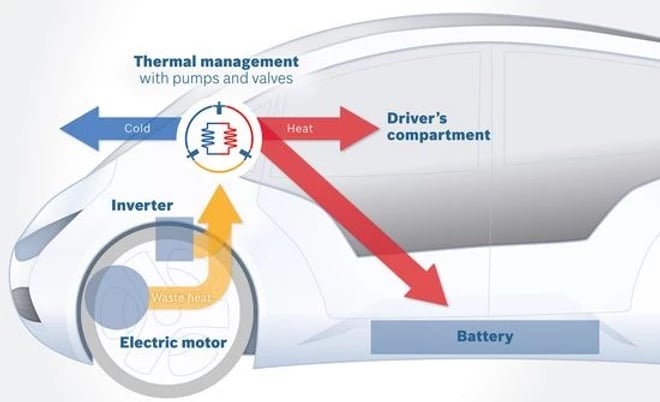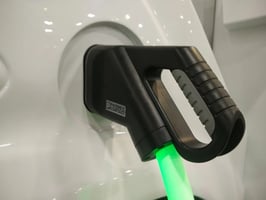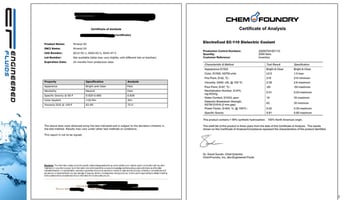Electric Vehicles require several different types of fluid products than what we're used to; they...
Consolidate EV Fluid Types With AmpCool Coolants
Dr. Jim Edmonson has written a great report discussing how legacy automotive fluid systems are holding back the advance and adoption of Electric Vehicles.

Traditional Internal Combustion Engine (ICE) vehicles need many different types of fluids on board: hydraulic (brake) fluids, glycol/water cooling fluids, engine lubricants, transmission fluids, and gear oils. Electric Vehicles have, in theory, simpler drive trains than ICE vehicles do. So why do EVs still have so many individual fluid and coolant systems?
Until now, part of the reason is that there were no multipurpose fluids available. Drive train fluids have tended toward single, or limited uses. Engine oils are not formulated to be efficient cooling fluids. Glycol/water engine coolants are not good lubricants nor hydraulic fluids. None of these fluids are electrically insulating, so they’re useless in thermal management of the ever-increasing electronics heat load.
Engineered Fluids has solved this problem with AmpCool® Dielectric Coolants . AmpCool Coolants are multi functional. They’re excellent heat transfer fluids that have enhanced lubricity built in, so they can be used for lubrication of motors, bearings and pumps. AmpCool coolants have low compressability and broad materials compatibility, so they can be used as hydraulic fluids. They’re effective electrical insulators (dielectric strength: 60 KV), ideal for immersion cooling of electronics and battery systems.
In addition to excellent multi-functionality, AmpCool fluids are nontoxic and biodegradable. They don’t contain chlorine, fluorine or other halogens. They’ve been tested and approved as “Food Grade” in the US by NSF. In short, they’re safe, effective and don’t harm workers or the environment.
Engineered Fluids is working with vehicle manufacturers, automotive systems designers and Tier One suppliers to reduce the number of different fluids on board the next generation of EVs. We invite you to contact us to discuss your thermal and fluid management challenges.



